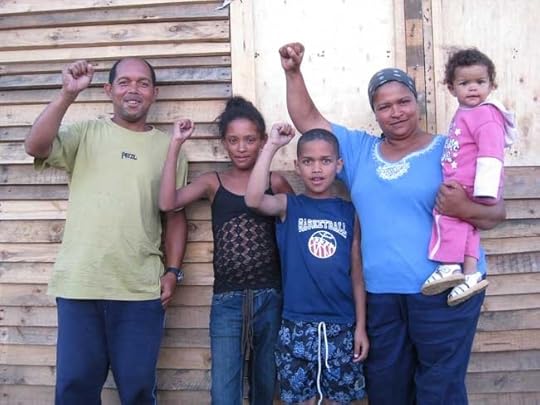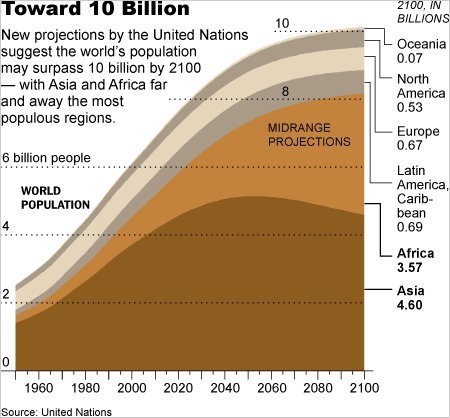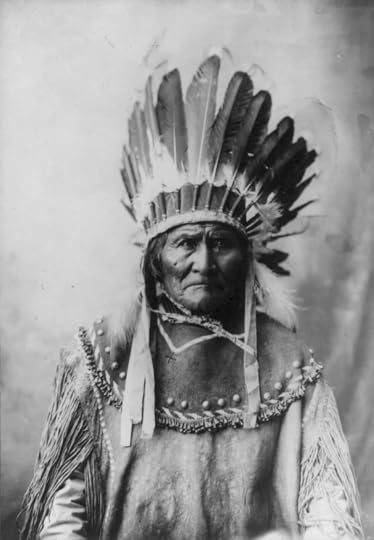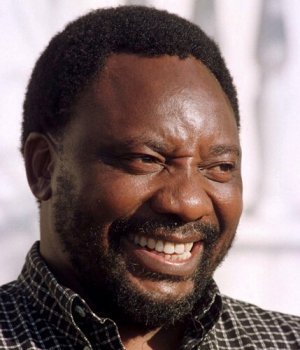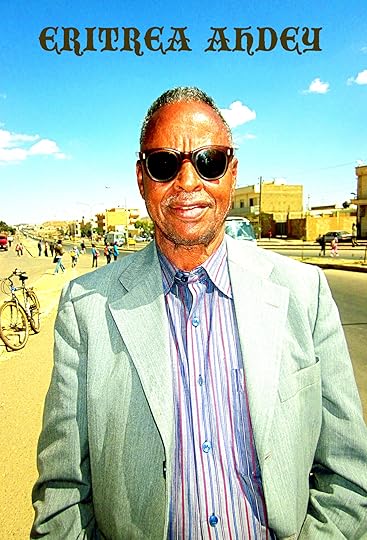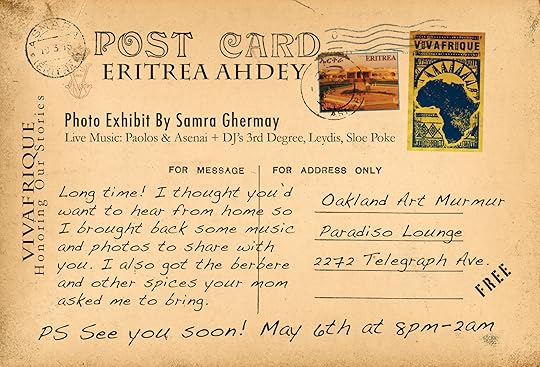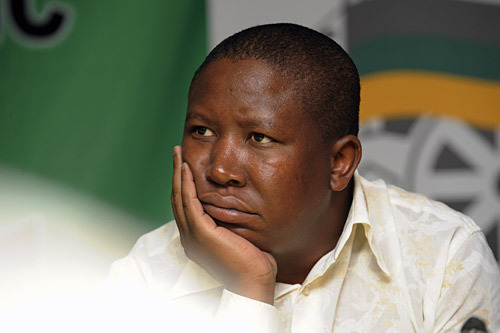Sean Jacobs's Blog, page 651
May 5, 2011
Animal Farm
One night, while in Cape Town this January, Ken Salo invited and I to presentations by summer abroad students from the University of Illinois at Urbana-Champaign. They were presenting their findings on urban inequalities in the city. A group of students presented on the struggles of a group of residents in Delft, a working class township, who had been evicted from their council houses, subsequently built shacks and had been forcibly relocated to a transit camp consisting of tin shacks. Their new home was known as Blikkiesdorp (Tin Can Town). Some of the residents were in the audience that night. While talking to one of the leaders afterwards, I realized that I was sent the proofs of a book by and about them a few months before. A collection of letters–written mostly in the residents colloquial Afrikaans–with photographs, the book is a testament to the residents' insistence on decent housing. The book, titled "No Land! No House! No Vote! Voices from Symphony Way," is out now and is being launched in Cape Town tonight. You can buy the book here.
Below, I am copying the foreword of the book by activist and writer Raj Patel, who lived and worked in South Africa for a while, and who captures well their conditions and struggle:
For those outside South Africa, particularly for the generation of activists who fought apartheid, it's tempting to imagine that after Mandela was freed from Robben Island, and lines snaked outside polling booths in the first free elections, and after the ANC won, and the national anthem became Nkosi Sikelele Afrika, and after Nelson Mandela held high the Rugby World Cup trophy, that even while the Soviet Union collapsed and capitalism crowed triumphantly from the United States, all was well in the Rainbow Nation.
But despite the close-harmony singing and the holding aloft of leaders, South Africa isn't The Lion King. It's more like Animal Farm. Orwell ends 'Animal Farm' with a scene in which we see the pigs and the humans whom they displaced, sharing a meal together, and it being hard to tell pig from human. Over the past two decades, a few black South Africans have become very wealthy, as Steve Biko predicted in 1972:
"This is one country where it would be possible to create a capitalist black society, if whites were intelligent, if the nationalists were intelligent. And that capitalist black society, black middle class, would be very effective … South Africa could succeed in putting across to the world a pretty convincing, integrated picture, with still 70 percent of the population being underdogs."
For many, the struggle against apartheid never ended, because apartheid continues to live. The introduction of neoliberal economic policies have led to falling levels of social welfare for the poorest. In South Africa, human development levels are now lower than in Palestine.[1] The ascent of a new black capitalist class isn't, however, the end of the narrative. The state itself, in trying to stamp out the uncomfortable appearance of poverty, and in behaving in ways similar to the Apartheid regime, has done much to fan the flames of dissent, and to continue the story of the fight against apartheid.
Think, for instance, of over one hundred families living in backyards across Delft, who thought that Christmas had come early in 2007. They received letters from their local councilor inviting them to move into the houses they had been waiting for since the end of Apartheid. They left their backyard shacks, to occupy their new homes along the N2 highway. For a brief moment, all was as well as can be expected. The quality of housing on the N2 project is an ongoing scandal, but at least the homes were theirs. Then the families received another notice. They were to be evicted. The original letters authorizing them to move into their new homes had been sent illegally. The local councilor who sent them suffers the modest indignity of being suspended for a month. The N2 residents are treated altogether more harshly. They are kicked out of their homes with nowhere to go – their former backyard shacks having been rented to new families the moment the old ones left. The city tried to move them to the temporary relocation areas, many kilometers away from the communities they have grown up with. The units that pass for housing here are tin shacks, 'blikkies', ramshackle blocks of metal in the sand, wind and baking sun, sealed in by armed police yet beset with crime. The evicted families refused to move to 'Blikkiesdorp'. They organized, setting up a temporary camp on the pavement of Symphony Way. The government threw its might into the legal system, extracting an eviction order that, by October 2009, soon after the letters in this book were written, moved all 136 families to the sandy wastes of Blikkiesdorp, in time for the tin shacks to bake in the summer heat.
Apartheid ends and apartheid remains.
The squires of the new order bicker among themselves for the spoils.
The poor, who fought and died for justice, wait for it long after its arrival has been announced. Movements arise to hasten the day when apartheid's remains can be swept away. The movements are crushed. At the beginning of 2010, when this preface is being written, the South African government has gone on the offensive against organizations of poor people across the country, from refugee camps to mob attacks against the leadership of the Kennedy Road Development Committee in Durban, to the residents of Symphony Way in Cape Town.
So why should you care about the pavements of Symphony Way when there's no one there anymore, just in time for the 2010 World Cup tourists? The readiest answer is that while the government can take the people out of Symphony Way but they can't take Symphony Way out of the people. As the residents themselves announced, "Symphony Way is not dead. We are still Symphony Way. We will always be Symphony Way. We may not be living on the road, but our fight for houses has only just begun. We warn government that we have not forgotten that they have promised us houses and we, the Symphony Way Anti-Eviction Campaign, will make sure we get what is rightfully ours."
This book is testament to what it is to be Symphony Way. Written toward the end of the struggle on the pavements, this anthology of letters is both testimony and poetry. The power of the words comes not simply from confession, but through the art with which these stories are told. Every struggle has its narrators, but some on Symphony Way are wordsmiths of the highest order. When Conway Payn invites you to "put your shoes into my shoes and wear me like a human being would wear another human being," he opens the door to a world of compassion, of fellow-suffering, that holds you firm.
The letters do not make for easy reading. Lola Wentzel's story of the Bush of Evil, of the permanent geography of sexual violence, will haunt you long after you close the pages of this book. In here you will find testimony of justice miscarried, of violence domestic and public, of bigotry and tolerance, of xenophobia and xenophilia. There's too much at stake shy from truth, and the writers here have the courage to face it directly, even if the results are brutal. Amid this horror, there is beauty, and the bundle of relationships between aunties, husbands, wives and children, of daughters named Hope and Symphony. All human life is here.
A few visitors have seen this already. Indeed, Kashiefa, Sedick, Zakeer and Sedeeqa Jacobs remark on the cottage industry of visitors, students and fellow travelers who visit — "Everyday there is people that come from everywhere and ask many questions, then we tell them its not lekker to stay on the road and in the blikkies." But this book isn't an exercise in prurience. It's a means to dignity, a way for the poors to reflect, be reflected and share with you. This book is testimony to the fact that there's thinking in the shacks, that there are complex human lives, and complex humans who reflect, theorise and fight to bring change. This book is a sign of that fight, and in reading it, you have been conscripted. Mon semblable, mon frère[3] – you are addressed, reader, not as a voyeur, but as a brother or sister, as someone whose eyes dignify the struggle.
If your tears fall from your eyes as did from mine, you have will have been touched by the idea, the incredible realization!, that the poor can think for themselves, write for themselves, and will continue to fight for their humanity to be recognized. Whether or not you're going to the 2010 World Cup, come to this book with open eyes, and you'll leave with an open heart.








May 4, 2011
People Everywhere
The United Nations is projecting that by 2100 there will be 10.1 billion on the planet. Africa's population will triple rising from one billion to 3.6 billion. The report, containing this news, was released on Tuesday. Here are some of the highlights and implications for the African continent, as reported by The New York Times:
The projections were made by the United Nations population division, which has a track record of fairly accurate forecasts. In the new report, the division raised its forecast for the year 2050, estimating that the world would most likely have 9.3 billion people then, an increase of 156 million over the previous estimate for that year, published in 2008.
… In Nigeria, the most populous country in Africa, the report projects that population will rise from today's 162 million to 730 million by 2100. Malawi, a country of 15 million today, could grow to 129 million, the report projected.
… One message from the new report is that the AIDS epidemic, devastating as it has been, has not been the demographic disaster that was once predicted. Prevalence estimates and projections for the human immunodeficiency virus made for Africa in the 1990s turned out to be too high, and in many populations, treatment with new drug regimens has cut the death rate from the disease.
… Other factors have slowed change in Africa, experts said, including women's lack of power in their relationships with men, traditions like early marriage and polygamy, and a dearth of political leadership. While about three-quarters of married American women use a modern contraceptive, the comparable proportions are a quarter of women in East Africa, one in 10 in West Africa, and a mere 7 percent in Central Africa, according to United Nations statistics.
"West and Central Africa are the two big regions of the world where the fertility transition is happening, but at a snail's pace," said John F. May, a World Bank demographer.
Some studies suggest that providing easy, affordable access to contraceptives is not always sufficient. A trial by Harvard researchers in Lusaka, Zambia, found that only when women had greater autonomy to decide whether to use contraceptives did they have significantly fewer children. Other studies have found that general education for girls plays a critical role, in that literate young women are more likely to understand that family size is a choice.
Click here for the press release and for the full report here.








The ANC Goes Pop

In May South Africans go to the polls to vote for new local councils. With few surprises, the result should be predictable. But the parties are going through the electioneering motions. This includes coming up with election songs. Something people can dance to while you make promises from the stage. They all did the same in the 2009 national elections. That time the verdict was mixed. The ruling ANC is first out of the gate with a kwaito tune with the meaningless title: "Together we can build better communities." If the tune sounds and the video looks familiar, it is because it is the work of kwaito producer Arthur Mafokate, whose songs sound like they were composed by a computer program and whose roster of mainly female artists–in this case Chomee–usually make up for deficient vocal skills with gyrations and short skirts. Here's a translation of the lyrics. Usually I'm a sucker, but I am not moved by these empty platitudes.
But that's not the end of it. Now the provincial ANC in Gauteng province plan to launch their own version of the Pop Idol franchise. Serious. And the party would prefer that competitors sing songs about the liberation struggle not about their terrible life under ANC rule.
According to the ANC: "…This initiative is based on what young people of all races have said they want."
As a friend remarked: I am sure that the #1 priority for youth of all races is another pop star. I can't imagine what other needs are unfulfilled?








Geronimo
I wondered why initially few, if any mainstream news outlets, pretended to not care why the code word for terrorist leader, Osama bin Laden, among his Navy Seals executioners was that of native American leader, Geronimo. A 19th century Apache leader, born Goyahkla, Geronimo led defensive wars against illegal encroachment on native land by separate white US and Mexican armies. He was later captured by the IS government and died in 1909 after 23 years in captivity.
As many news outlets reported Navy SEALs confirmed the death of Bin Laden with the line: "Geronimo E-KIA." E-KIA is short for Enemy Killed In Action.
According to ABC's (which finally caught onto the odd association between Osama bin Laden and Geronimo) and linked to a report –native Americans are angry about the association:
"It's another attempt to label Native Americans as terrorists," said Paula Antoine from the Rosebud Sioux Tribe in South Dakota.
"WTF, da gov't code named osama bin laden "Geronimo"! wat kinda (expletive) is that?" is how Cody YoungBear LeClair of Marshalltown, Iowa, put it on his Facebook page.
On Facebook, on Twitter, on Native American websites, in local newspapers, and in what appear to be countless conservations on reservations and in schools across the country, Native Americans are genuinely hurt and puzzled by the choice of "Geronimo" as a code-name for either Bin Laden or the mission to take him out.
Also see here and .








Nawal el Saadawi Feels Young Again

On March 11 – just one month after Hosni Mubarak was ousted by the January 25th protesters – Nawal el Saadawi (my hero) spoke as one of the "Revolutionary Women: Voices of Dissent from Egypt and Pakistan" at the Brecht Forum.
The video above features her talk. Enjoy–Sophia Azeb.








May 3, 2011
Cyril Ramaphosa and AIDS
The latest print issue of Foreign Policy Magazine has an essay by South African writer Johnny Steinberg on creative writing about the AIDS pandemic in that country. Steinberg covers the usual ground: that mainly white, gay men have written memoirs about AIDS; that memoirs about black men's experiences with AIDS were written by white women; that popular AIDS media (like LoveLife, the AIDS education campaign targeted at teens) do not openly make connections between sex and AIDS; and that fiction writing by black writers, until recently, have shied away from themes of sex and sexuality. Nothing new here. However, the piece does get interesting when Steinberg asserts that former President Thabo Mbeki, a known AIDS denialist, "… was not necessarily the outlier he is often said to be [on AIDS]. His dabbling in quack science and AIDS denialism was symptomatic of a great unease in South Africa's political culture, one that has translated into an eerie silence on the page." Steinberg then makes these claims about Cyril Ramaphosa, once touted as a successor to Nelson Mandela as South African President:
In August 1988, when most South Africans thought of AIDS as a Western problem and black politics was consumed by the fight against apartheid, a group of sociologists presented a draft paper on HIV to a small audience in Johannesburg. Although HIV prevalence in the country was then less than 0.1 percent, the authors wrote, the mining industry was structured in such a way that it could potentially disperse the virus to all four corners of the region. South Africa's quarter-of-a-million migrant mineworkers lived two lives, many with at least two long-term lovers, one at work and the other at home in the countryside.
Shortly after the presentation, Cyril Ramaphosa, the general secretary of the National Union of Mineworkers and one of the country's most powerful anti-apartheid figures, called Eddie Webster, director of the institute that had undertaken the research, and asked that the paper be canned, complaining that the research presumed black men to be promiscuous and was thus tinged with racism. As Webster told me recently, the two men haggled. Webster tweaked the report's language. Ramaphosa remained unsatisfied. Eventually, they agreed that the paper could be published — but not in South Africa.
Six years later, Nelson Mandela made it known that Ramaphosa was his preferred candidate to follow him as South Africa's president. In the end, Mandela was overruled and succeeded by Thabo Mbeki, whose presidency will be remembered above all for his questioning of the link between HIV and AIDS.
For Steinberg, "… the tetchy exchange between Ramaphosa and Webster suggests [that] Mbeki was not necessarily the outlier he is often said to be." So Steinberg prints allegations about Ramaphosa based on an "exchange." If I read it right, Steinberg is claiming that Ramaphosa was (still is too?) an AIDS denialist. From the little that I know about Ramaphosa this sounds fanciful. Ramaphosa, a wealthy businessman now, served until recently on the board of the Global Business Coalition on HIV/AIDS, Tuberculosis and Malaria and has publicly criticized Mbeki's fanciful views on HIV/Aids. So the claims about Ramaphosa came as a surprise to me at least. I've never heard this story before and wonder what the reaction to this news has been inside the country.
Here's the link to Steinberg's piece.








'Eritrea, My Country'
Islam Goes Pop
Ahmed Abu Haiba, an Egyptian entrepreneur and (self-described) devout Muslim, launched an Islamic music television channel, "4Shbab," in 2009. 4Shbab (literally, 4 Youth) fulfilled Haiba's vision of utilizing, "media innovation from the West," to spread the message of Islam. Islamic singing competitions (for men only, though otherwise along the lines of American Idol), Muslimah-led talk shows and "wholesome" music videos constituted much of 4Shbab's content.
Al Jazeera recently aired a documentary, Witness: Pop Goes Islam, on 4Shbab and the controversy surrounding the channel's methods of conveying Islam to a 'twenty-first century audience.' Though Haiba considers the channel to be chaste and family friendly, he is filmed reading hate mail and checking discussion boards on the internet for nasty remarks about his channel. Some of the hate mail is about the nature of the music videos themselves while others are more pointedly patriarchal rants about veiled women (higabi, in Egyptian Arabic) wearing makeup.
One of the women targeted is Yasmine Mohsin, a higabi model with a lot of ambition. She turns to 4Shbab to further her career, focusing on her desire to host an Islamic fashion show. Haiba agrees to train her, but insists she take intensive Quranic classes first – yet another sign that Haiba might actually be more interested in spreading Islam than making money. Regardless, Mohsin does not end up working for 4Shbab due to the controversy surrounding the channel (as well as, "wearing tight jeans and a tight shirt with a veil on top"), but continues to organize her union for veiled models and lands a job on a Syrian television station.
Saudi and Emirati investors quickly begin to pull funding or demand more control over 4Shbab, which is devastating to Haiba, who runs the channel on an annual budget between 5 and 6 million riyals (about 1.6 million US dollars). But accusations that the channel is, "spreading American Islam," and rendering the Quran "impotent" are too damaging for Haiba to bring under control (these words from Sheikh Youssef al-Badri, shown on a taxi television at the beginning of the documentary). The documentary ends with Haiba unsure of the future of 4Shbab, but declaring, again, his submission to God regardless of what happens.
Pop Goes Islam ultimately provides a fairly interesting glimpse into the world of so-called 'modern Islam'. Whereas more conservative clerics believe 4Shbab to be too Western, it is clear that Haiba is interested in presenting Islam to a wider, younger audience. It's also clear, however, that Al Jazeera got a bit sidetracked with the world of veiled fashion models. In the end, this documentary would have been greatly improved if we had been able to see and hear more of these infamous music videos. The context is well set, as the scene at the Oscar Video Clip awards makes clear, but the content of 4Shbab is what I missed most. *
*I've dug up some videos – one American! – aired by 4Shbab – here, here and here.
–Sophia Azeb








May 2, 2011
Music Break
Seun Kuti and his band playing a track from their brilliant new album 'From Africa With Fury: Rise' on the British TV program "Later Live …" last month. I'm gonna get me one of those t-shirts. – Tom Devriendt








What to make of Julius Malema
Julius Malema, the young ANC leader recently described by Winnie Mandela as "the future President of South Africa" can get a rise out of people. And he is often a stand-in for all kinds of prejudices. As comic artist Nathan Trantaal told AIAC recently: "… The South African mainstream likes to have a black man they can laugh at, a black man who says something that is so obviously wrong they can jump at the opportunity to lampoon him. Take Julius Malema, for example. I don't particularly like the way people talk or write about him. I mean, he's a dumb bastard, but there's just something very uncomfortably self-righteous about it. Don't call a black person dumb in the media every single day. "Dom Kaffir" [dumb kaffir] is what the old government used to say. And whether it is deliberate or not, it has that undercurrent." Which is why the blog Think Africa Press' round-up of South African expert opinion on Malema, is so valuable. Here's a sample from the expert comment by political economist (and former broadcaster) Hein Marias–he wrote the new book South Africa Pushed To The Limit: The Political Economy Of Change:
Julius Malema is neither an anomaly nor a flash-in-the-pan. Both lurid and "down-to-earth", his populism draws on key themes of African nationalism, but blends them enigmatically into a politics that accommodates social conservatism, lumpen radicalism and grasping entitlement. Malema is a work-in-progress, and his politics – or more accurately, the political register in which he operates – constitutes a political experiment within the ruling African National Congress (ANC).
His prominence stems not simply from rank-and-file support in the ANC, but from the backing of powerful sections of the organization's leadership. There are two, interlinked reasons for this. The ANC's political and ethical moorings have grown doddery and indeterminate. It has a long tradition of functioning as a "broad church" of interests and political currents that orbit around a set of key, progressive principles and ideals. Over the past decade, though, those have grown increasingly fluid and indistinct, and the organization now functions much less as a coherent engine of change than as a zone in which motley, often conflicting, interests and ambitions can be pursued.
But that creates a major problem. How does a one-size-fits-all ANC then retain its political authority and build consent amid massive unemployment, widening inequality, and a palpable sense of unfairness? Such realities push ideology and political theatre to the fore. In South Africa's context, they invite inventive use of the symbols of liberation and nationalism, and tempt rousing affirmations about identity and entitlement, including chauvinist ones. Malema is best understood in that light – as a kind of political prototype, which significant sections of the ANC believe might offer a rewarding way forward. Which is why Malema-the-politician might or might not survive, but his brand of politics will probably be around for a while.
Read the rest of the experts here.








Sean Jacobs's Blog
- Sean Jacobs's profile
- 4 followers


